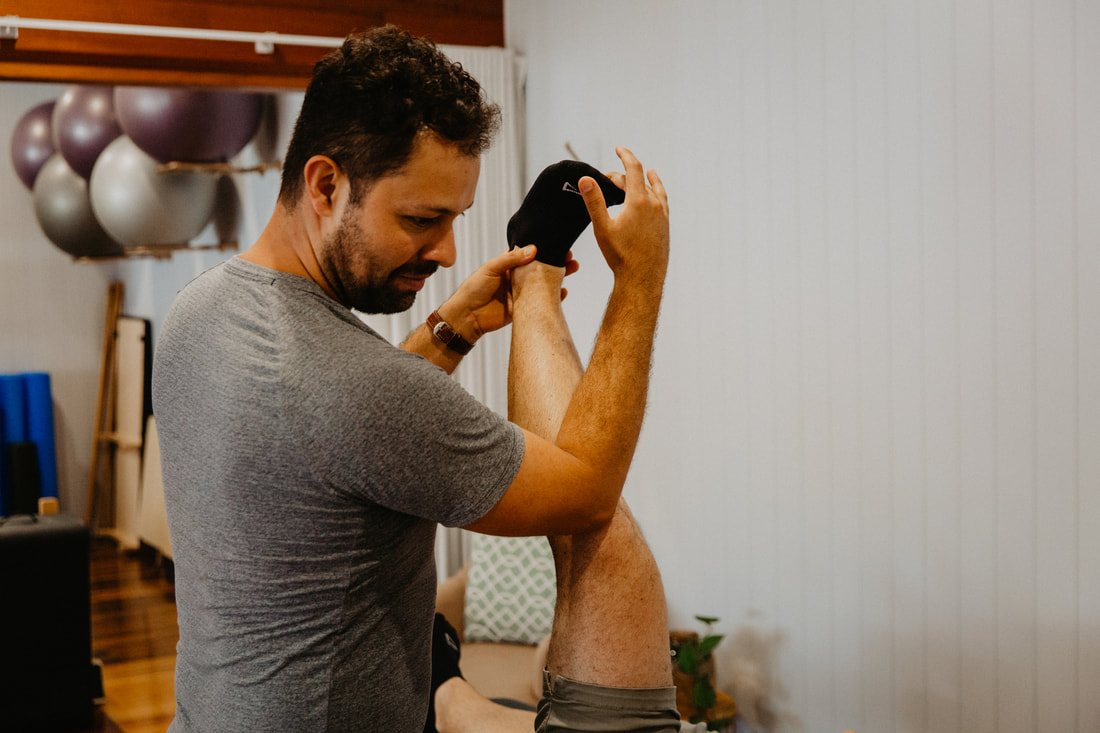Sports injury physiotherapy for surfers.
Surfing and the Role of a Specialised Physiotherapist
Surfing is a dynamic and physically demanding sport that combines the athleticism of swimming with the balance and agility required to ride waves on a surfboard. It demands not only cardiovascular fitness for paddling out to waves but also strength, flexibility, and balance for manoeuvring on the board. Surfers often face challenging ocean conditions, making the sport as mentally demanding as it is physically.
Key Aspects of Surfing:
The Importance of a Physiotherapist Specialised in Surfing:
What Are Common Injuries Among Surfers?
Surfing, a sport requiring balance on waves and strength in paddling, often leads to specific types of injuries:
How Can Surfers Prevent These Injuries?
Injury prevention is crucial for surfers:
What Physiotherapy Treatments Are Effective for Surfing Injuries?
Physiotherapy is vital in treating and managing injuries in surfing:
When Should a Surfer Consult a Physiotherapist?
Professional guidance is recommended in several scenarios:
How Can Physiotherapy Help in Long-Term Injury Prevention for Surfers?
Long-term injury prevention is essential for surfers:
What Recovery Strategies Should Surfers Employ?
Effective recovery strategies are important for surfers:
If you have been injured during surfing, there are many things that our Tarragindi physiotherapists can do to help get you back to being sport ready and active again so come in and speak to our friendly physiotherapists today! Feel free to give our Tarragindi Physiotherapy clinic a call on 07 3706 3407 or email [email protected]
Surfing is a dynamic and physically demanding sport that combines the athleticism of swimming with the balance and agility required to ride waves on a surfboard. It demands not only cardiovascular fitness for paddling out to waves but also strength, flexibility, and balance for manoeuvring on the board. Surfers often face challenging ocean conditions, making the sport as mentally demanding as it is physically.
Key Aspects of Surfing:
- Dynamic Balance: Maintaining stability on a moving surfboard requires exceptional balance and core strength.
- Upper Body Strength: Essential for paddling, which is a key component of surfing.
- Flexibility and Agility: Necessary for performing maneuvers on the waves and for maintaining posture on the board.
- Environmental Challenges: Surfing in various ocean conditions requires adaptability and resilience.
The Importance of a Physiotherapist Specialised in Surfing:
- Injury Prevention and Management: A physiotherapist with experience in surfing can provide targeted strategies for injury prevention and effective rehabilitation plans, tailored to the unique physical demands of the sport.
- Performance Enhancement: Understanding the biomechanics of surfing, a physiotherapist can assist athletes in refining their techniques and improving their physical conditioning, crucial for performance.
- Recovery and Conditioning Advice: Specialized physiotherapists can offer guidance on conditioning exercises and recovery techniques appropriate for surfers, essential for maintaining fitness and preventing injuries.
What Are Common Injuries Among Surfers?
Surfing, a sport requiring balance on waves and strength in paddling, often leads to specific types of injuries:
- Shoulder and Rotator Cuff Injuries: Due to repetitive paddling motions.
- Knee Injuries: From maneuvering and turning on the board.
- Back Pain: Caused by the arching posture during paddling and riding waves.
- Ankle Sprains: From twisting movements while balancing on the board.
- Cuts and Lacerations: Due to contact with the surfboard, fins, or the reef.
How Can Surfers Prevent These Injuries?
Injury prevention is crucial for surfers:
- Strength and Flexibility Training: Building upper body strength for paddling and lower body strength for board control, along with overall flexibility.
- Balance Training: Enhancing stability and control on the surfboard.
- Adequate Warm-Up: Including dynamic stretching and light cardio before entering the water.
- Proper Surfing Technique: Mastery of paddling, pop-up, and riding techniques.
- Use of Protective Gear: Wearing rash guards, wetsuits, and reef boots for protection.
What Physiotherapy Treatments Are Effective for Surfing Injuries?
Physiotherapy is vital in treating and managing injuries in surfing:
- Manual Therapy: Including massage, joint mobilization, and stretching to alleviate pain and improve movement.
- Tailored Exercise Rehabilitation: Specific exercises to strengthen and rehabilitate injured areas.
- Balance and Proprioception Exercises: Focusing on improving balance and body awareness, crucial for surfing.
- Pain Management Techniques: Utilizing modalities like ice therapy, heat therapy, or TENS.
- Injury Prevention Education: Providing guidance on safe surfing practices and conditioning.
When Should a Surfer Consult a Physiotherapist?
Professional guidance is recommended in several scenarios:
- Post-Injury: For an accurate diagnosis and a comprehensive rehabilitation plan.
- Persistent Pain or Discomfort: Especially if it affects surfing performance or daily activities.
- Performance Enhancement: To improve surfing skills and reduce injury risk.
- Preventive Measures: Learning effective methods to reduce the risk of future injuries.
How Can Physiotherapy Help in Long-Term Injury Prevention for Surfers?
Long-term injury prevention is essential for surfers:
- Personalized Exercise Programs: Focused on the specific needs of surfers, considering strength, balance, and flexibility.
- Regular Physical Assessments: To monitor progress and adjust training accordingly.
- Technique Analysis and Improvement: Ongoing refinement of surfing techniques.
- Nutritional and Lifestyle Advice: To support overall health and enhance surfing performance.
What Recovery Strategies Should Surfers Employ?
Effective recovery strategies are important for surfers:
- Active Recovery: Engaging in light activities to promote circulation and muscle recovery.
- Nutrition and Hydration: Key for muscle repair and maintaining energy levels.
- Adequate Sleep: Critical for physical and mental recovery.
- Stress Management: Utilizing relaxation techniques to maintain a healthy mental state.
If you have been injured during surfing, there are many things that our Tarragindi physiotherapists can do to help get you back to being sport ready and active again so come in and speak to our friendly physiotherapists today! Feel free to give our Tarragindi Physiotherapy clinic a call on 07 3706 3407 or email [email protected]
Who to book in with:
Yulia Khasyanova
|
Mauricio Bara
|
Emma Cameron
|



